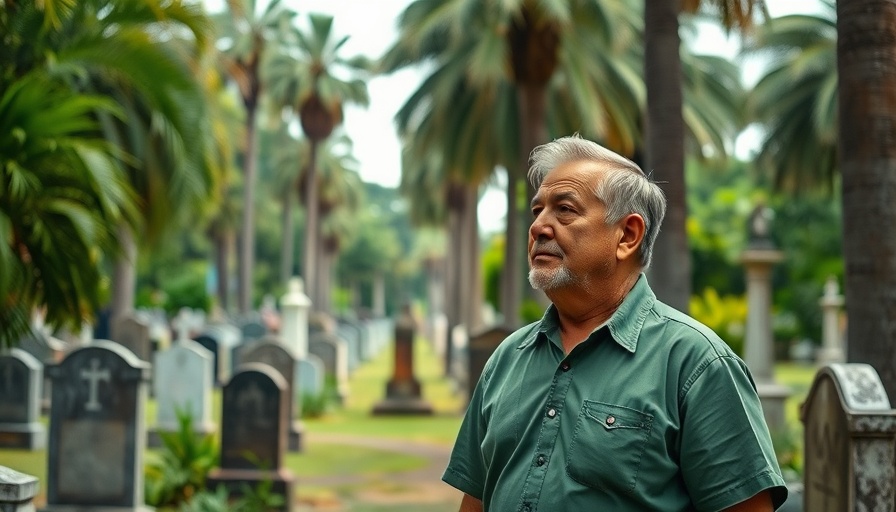
The Struggle for Recognition: Gullah Culture at Risk
The Gullah Geechee community is one of the most unique and culturally rich groups in the United States, yet they are facing an uphill battle for recognition and preservation. Originating from enslaved West Africans, the Gullah hold tight to their traditions, language, and connection to the land they have inhabited for generations. However, the burgeoning development on Hilton Head Island poses a significant threat to their existence. Gullah descendants, like Galen Miller, must navigate a world where their sacred practices and family connections are commodified and overshadowed by the affluent lifestyle of incoming property owners.
The Clash of Cultures: Gullah Heritage vs. Affluent Development
Once the heart of Gullah culture, the land around Hilton Head is increasingly taken over by wealthy developments. The Talbird Cemetery, a silent sentinel to the past, stands amidst luxury homes where multimillion-dollar lifestyles flourish. This juxtaposition invites an exploration of social class and identity. The Gullah face an ethical dilemma in preserving their heritage while contending with those who see land as a mere investment opportunity. This conflict underscores broader themes of colonialism and cultural dilution, echoing a long-standing narrative of marginalized communities struggling against more powerful interests.
Historical Context: The Gullah's Resilient Legacy
Understanding the Gullah's plight requires a historical lens. The community descended from enslaved Africans who developed a unique culture, language, and agricultural expertise that laid the foundation for Southern rice and cotton plantations. Isolation allowed them to preserve ancestral traditions, but modern developments have threatened their existence as land ownership and economic power shifted dramatically in the past century. The Gullah's struggle is not only a local issue but part of a national discourse on race, land rights, and the need for cultural recognition.
Contemporary Isolations: Lessons from Hilton Head
The legal battles over access to burial grounds highlight severe injustices and resonate with issues faced by marginalized groups across America. The fight for the Talbird Cemetery reflects the broader fight for civil rights and recognition of historically excluded communities. While Gullah descendants endeavor to reclaim their heritage, others across the nation face similar restrictions on their cultural and ancestral connections, raising vital questions about who owns history and memory in a rapidly modernizing world.
Future Predictions: The Path Ahead for Gullah Communities
As Hilton Head Island continues to evolve, the future of the Gullah community will largely depend on community organization and advocacy. The decision of residents and local governments will determine whether this diverse culture thrives or succumbs to commercial interests. Envisioning a future where Gullah traditions are preserved, lived, and celebrated requires engagement and allyship from both local governments and the affluent new residents of the island.
The National Spotlight: Relevance to Current Events
The issues faced by the Gullah community echo in larger national conversations about land ownership, rights, and cultural preservation. As America grapples with its history of inequities, the Gullah's fight is a microcosm of broader struggles for dignity and recognition faced by many marginalized communities across the U.S. The developments on Hilton Head Island could serve as a pivotal case study illustrating the ongoing impacts of historical injustices and the importance of inclusive decision-making in urban planning.
Call to Action: Preserving Our Heritage Together
The story of the Gullah people beckons not just local awareness but national action. As we witness the dynamics of class and identity play out on Hilton Head Island, it calls for a collective responsibility towards cultural preservation. Supporting Gullah initiatives and fostering understanding among diverse communities can bridge gaps and create a more inclusive society. Engage with local organizations that advocate for the rights of marginalized heritage and reflect on your contributions to cultural preservation.
 Add Element
Add Element  Add Row
Add Row 



Write A Comment